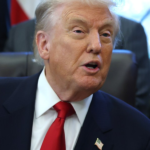The UN Secretary-General’s message could not be clearer: humanity has overshot the 1.5°C limit – however we still have time to change the course of climate change. The Paris Agreement’s temperature goal reflects long-term change over decades, not individual years. What matters now is how fast and decisively we act to bring global temperatures back down and limit the impacts.
That recovery depends on one sector above all others: business enabled by governments that set clear, consistent rules and incentives that favour clean over fossil.
History will not remember who made the most pledges. It will remember who delivered it. For nearly a decade, companies have committed to alignment with the Paris Agreement. COP30 in Belém, Brazil, must be the moment when the private sector continues to move forward.
At the same time, the means to accelerate progress have never been greater. The cost of renewable energy has fallen to historic lows and global clean-energy spending is surging — roughly $2 trillion in 2024, nearly twice fossil-fuel investment. Generative AI can now trace emissions, track supply chains and measure impact in real time. Consumers reward brands that match their values, while investors increasingly price climate risk into capital decisions. The economics of sustainability have flipped: action now creates value, while inaction destroys it.
Some companies are already proving what execution looks like.
Neoenergia incorporates sustainability as a strategic pillar guiding their long-term value creation. Their strategy promotes a cleaner, more resilient, and inclusive energy system for Brazil’s future. The Company anticipated the energy transition by pioneering renewables and investing in resilient, smart networks that accelerate electrification and reduce emissions. By expanding and digitising electricity networks, they are strengthening energy security and contributing to the development of a decarbonized future — one that promotes prosperity while safeguarding the planet.
Technology and skills are the other decisive levers. While 96% of CEOs view innovation as central to sustainability, only one in four rank it among their top strategic priorities. That must change. Digital tools, AI-driven analytics and scalable clean technologies can transform efficiency and transparency across value chains — but only if companies invest at scale and ensure equitable access for smaller enterprises and developing markets.
The transition to a net-zero, resilient economyis also a human one. Nearly every CEO surveyed identified workforce transformation as a priority. The net-zero economy will demand millions of new skills — from renewable energy engineering to sustainable finance and data management. Companies must invest now in upskilling and reskilling, ensuring the benefits of the green economy are shared widely. A climate-ready workforce is not charity; it is competitiveness.
The road to Belém offers business a choice. Coordinated acceleration — harmonised regulation, scaled investment and rapid workforce transformation — can deliver global progress at pace. Fragmented adoption — where firms move unevenly and guard short-term interests — will lock in instability and inequality.
The UN Secretary-General has been clear: 1.5°C remains within reach, but only if every lever of private-sector power — capital, innovation and influence — is applied decisively. The tools exist. The business case is proven. The public is watching.
At COP30, the world will not ask whether companies understand the challenge. It will ask whether they are delivering. The time for hesitation is over.
The opinions expressed in Fortune.com commentary pieces are solely the views of their authors and do not necessarily reflect the opinions and beliefs of Fortune.









